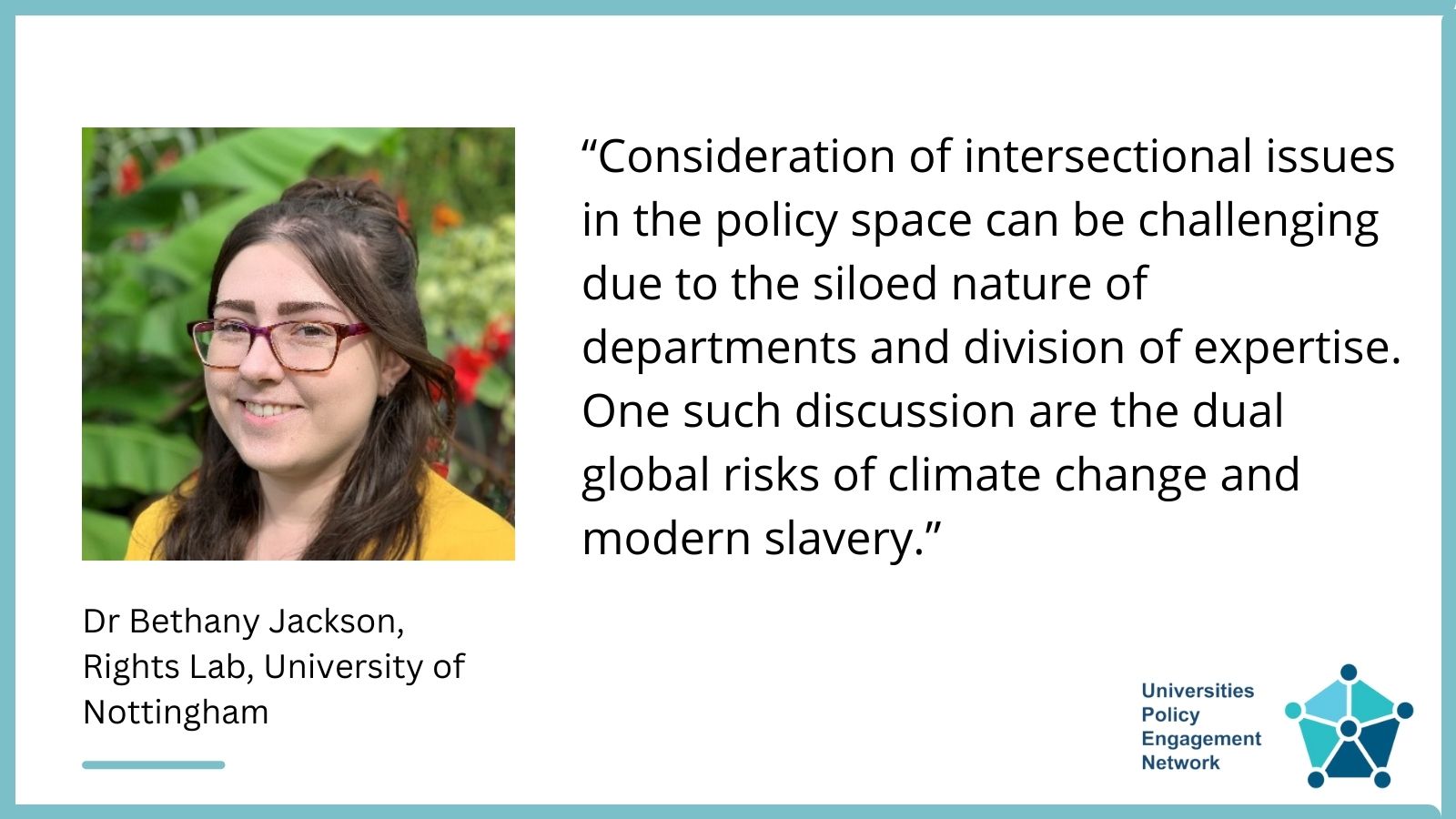Productive conversations with governance actors in siloed spaces

Consideration of intersectional issues in the policy space can be challenging due to the siloed nature of departments and division of expertise. One such discussion are the dual global risks of climate change and modern slavery. Evidence has been growing in the academic and advocacy spheres that the two issues are interlinked, and some work has begun within the policy space – particularly in the European Union with the development of the new Directive on Corporate Sustainability Due Diligence. In our research project funded by the Modern Slavery Policy and Evidence Centre, researchers at the University of Nottingham explored the unique context of how to bring together governance actors from across the UK and the departmental divide to address both modern slavery and climate change simultaneously. Here, I reflect upon some of the core policy the lessons learned throughout this process as the lead academic working on this project.
Engaging with non-elite policy actors
Much of the engagement with governance actors we had were with experts within departments rather than engaging with ‘elite interviewing’ with senior policymakers. As a result, policymakers were open to consenting to being recorded despite their status often as civil servants (and thus being publicly impartial). The openness to engaging with the research in this way, I believe, speaks to the importance and value many of the participant policymakers felt about the topic and why it should be considered within policy spaces. It is possible that stating we would not record the interviews that took place could have meant more involvement with policymakers but did not appear to prevent contributors from sharing their expertise and experiences.
Making useful recommendations
The provision of clear, targeted, and actionable recommendations is preferable for governance actors to advocate for combined action on modern slavery and climate change – but this is applicable to any issue. For example, where possible, recommendations should be tailored and allocated to specific governance actors and departments to gain traction with the right people. Another element that was raised in this area was prioritisation was deemed by policymakers that we engaged with was important. As part of our research project, this was also a way to make recommendations accessible to the climate change policymakers as we followed established precedent using terminology from the UK Climate Change Risk Assessment reports coding for priority in a way that was familiar to a cohort of policymakers new to the topic of modern slavery.
Timing of recommendations
Recommendations are often seen as the outcome of a research project but something that we reflected upon and included was a constructive discussion with policymakers themselves to increase specificity, identify additional targeted departments/groups, and sense check the feasibility of suggestions. Recommendations remained however part of our final outputs from the research, but upon reflection when working in the governance space on a complex intersectional issue (in our case modern slavery and climate change), we would suggest that recommendations should be considered at the mid-stage of a research project and then tailored further as further evidence becomes known.
The future of policy impact
Overall, engagement with policymakers from diverse departmental backgrounds can prove challenging but building and working with policymakers to identify useful actions can lead to fruitful outcomes. Often researchers aim for legislative change as evidence of meaningful impact from research. However, engagement with policymakers itself is a form of impact in and of itself that should be encouraged as opening doors to new ideas – particularly in an intersectional research area – is often a valuable outcome in traditionally siloed spaces.










































































































